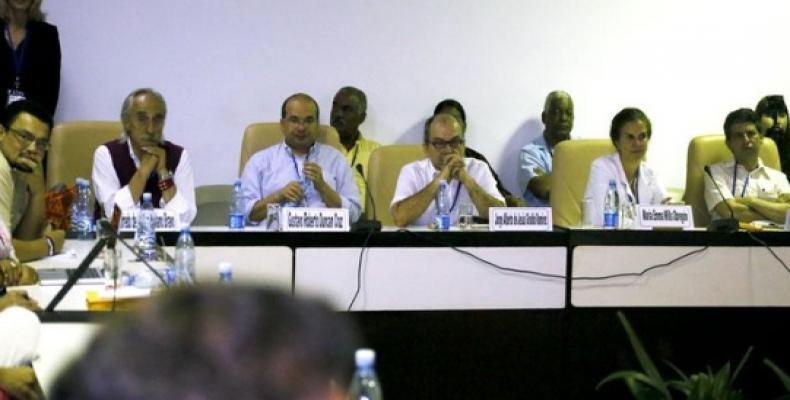As a result of these talks, the parties have already reached consensus in the issues of rural reform (in May 2013), political participation of FARC-EP (in November 2013) and illicit drugs (in May 2014).
Representatives of the third group of those affected will go to the negotiating table at the beginning of October to speak out about their experiences and make proposals, as part of an effort coordinated by the United Nations, the Episcopal Conference and the National University of Colombia.
This will be the the third group to come to Havana and it is foreseen that another two groups formed by a dozen persons each one will follow, making a total of 60 persons, selected by those institutions.
Since the first appearances of the victims the demand for a bilateral cease fire is picking up steam in an environment adequate for the development of dialogues and to guarantee their continuity, which has been repeatedly rejected by the government.
Despite the complexity of the process and the frictions, both parts have expressed optimism and the will to advance toward agreements that allow to achieve stable and lasting peace for Colombia.
Colombian Peace Talks Resume in Havana

Havana, September 23 (PL-RHC) -– Peace delegations of the Colombian government and FARC-EP rebels resumed contact on Tuesday to debate the issue of victims in the armed confrontation in the South American nation. Since November 2012, the government and the Revolutionary Armed Forces of Colombia-People´s Army (FARC-EP) have been holding talks in Havana aimed at finding a political solution to over five decades of social and armed conflict.
Artículos Relacionados
Comentarios
Deja un comentario
Todos los campos son requeridosMás Vistas
- Deep Research, la nueva herramienta que promete transformar a ChatGPT
- Apoyo a Cuba en Canarias frente a hostilidad de EE.UU.
- Trovador cubano Eduardo Sosa en estado grave por accidente cerebrovascular
- Cuba califica de fructífera XI Reunión de Coordinadores de la Celac
- Vegueros espirituanos por continuar logrando mayores niveles productivos

